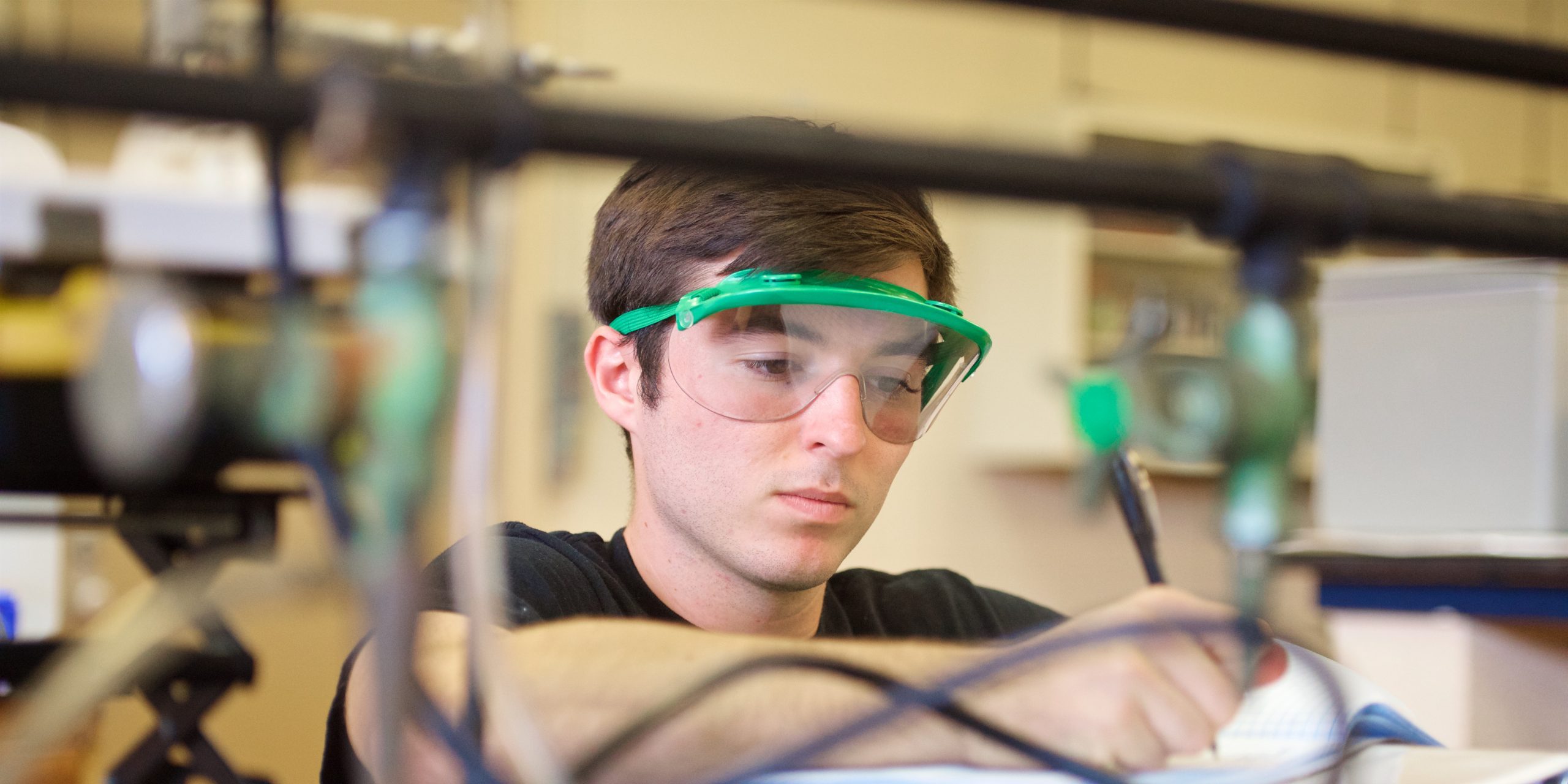Simone Bregni
Professor of Languages & Director of the Italy Center
Spring Hill graduates will be prepared for leadership roles in Chemistry, Physics, and Engineering. We develop students’ technical and scientific knowledge and abilities, while providing a solid foundation of liberal arts education. Our focus is on research, innovation, problem-solving and teamwork in a supportive learning environment featuring small classroom sizes with individualized attention. Students are taught how to work effectively and respond to the global technologic, economic and societal changes of the 21st century.

Chemical research fosters breakthroughs in forensic science, pharmaceuticals, medicine, agriculture and many other fields.
Chemical research leads to the development of new and improved products, including paints, adhesives, medication, cosmetics, electronics and fibers.
You like being challenged and would like access to real world research opportunities.
You excel at science and math and enjoy analyzing and solving problems.
You enjoy innovation, managing projects, working as a team, communicating with others and are able to meet deadlines.
Engineers address real world problems, including pollution control, finding ways to harness new energy sources, producing new medicines and building new structures.
Engineers are in high demand in every country around the world. Many engineering students have an excellent chance of getting a job immediately upon graduation.
You enjoy exploring the basic principles governing the structure and behavior of matter, the generation and transfer of energy and the interaction of matter and energy.
You are fascinated by gravity, electromagnetism, and nuclear interactions.
You are considering a career that involves electronics, optics, materials, communications, aerospace technology, navigation equipment, astronomy or medical instrumentation.
You enjoy a small school setting with small classroom sizes and one-on-one attention from your professors.
Spring Hill College has several clubs, honor societies and other student organizations that can expand students’ portfolios further with extracurricular activities, events and projects. Learn more about our many student organizations here.
You can also learn more about career development, preparation and opportunities with the Office of Career Development.

Professor of Languages & Director of the Italy Center

Assistant Professor